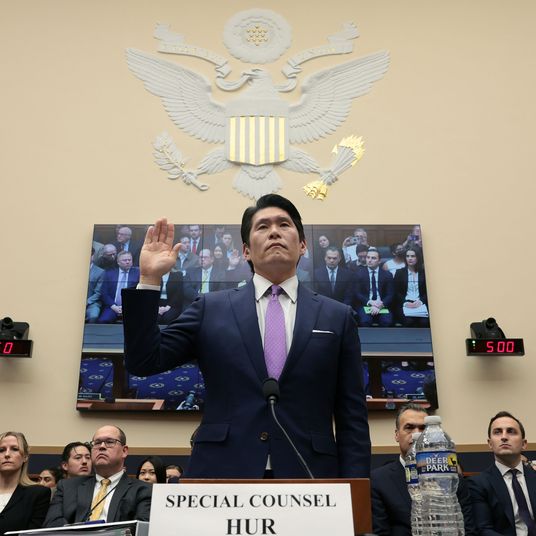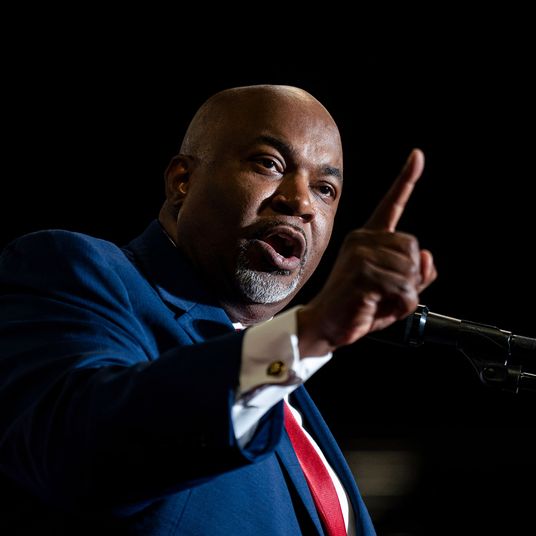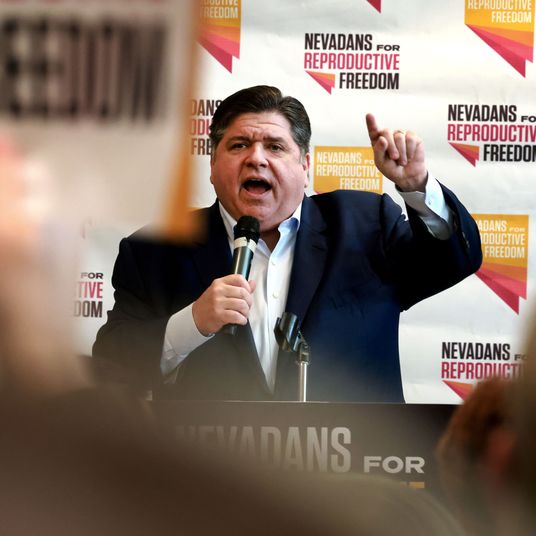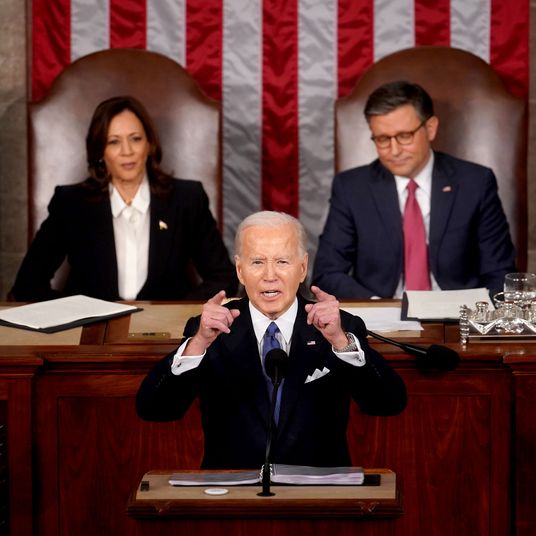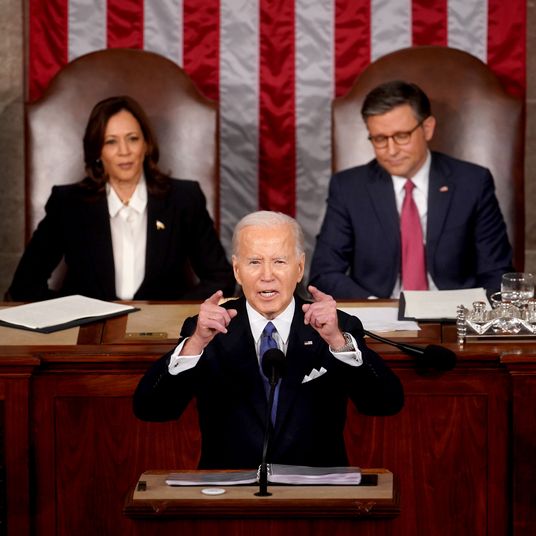President Biden has to deal with a short-term catastrophe and a long-term catastrophe. The short-term catastrophe is a Republican threat to hold the debt ceiling hostage unless Biden hands over as yet unspecified concessions. The long-term catastrophe is a sclerotic permitting regime that, unless it is fixed, will prevent most of his hundreds of billions of dollars in green-energy funding from ever getting spent.
Now, there is at least a chance both problems can be solved at once. Democrats should leap at it.
Republicans in Congress are floating the idea of attaching permitting reform to a measure to lift the debt ceiling. Both House Speaker Kevin McCarthy and House Majority Leader Steve Scalise invited Biden to use negotiations over their energy bill to the debt limit. “The permitting issue is one for both sides. The left wants permitting because a lot of renewable projects are being stopped,” Senate Minority Whip John Thune said yesterday. “If we can find some common ground on that issue, it would be a big win for everyone.”
The debt-ceiling problem is that, as soon as Republicans won control of the House, their craziest members began to clamor to hold the debt ceiling hostage, and the less crazy Republicans decided (as is their wont) to go along with this. Democrats have principled governing reasons not to go along with any such demand. If the minority party can threaten a global financial crisis to extort the majority party into going along with otherwise unacceptable policy provisions, it would simultaneously distort the operating structure of the Constitution while creating regular deadline negotiations that practically guarantee an eventual catastrophic default.
However, extortion is a different thing than attaching mutually acceptable provisions to a debt-ceiling increase. Republican hostage-takers have tried to justify their extortion by conflating the two, but threatening default to force the other party to accept your agenda is a very different thing than to pass a bunch of bipartisan policy ideas as a sweetener along with a debt-ceiling increase.
In this case, permitting reform is an idea with broad (though, as I will explain, not uniform) support. So this is the sort of policy that Congress would traditionally include with a debt-ceiling hike.
And, in fact, permitting reform is an absolutely vital policy measure. One of the most important ideas that has developed in recent years — really, just months — is that the obstacle course of legal requirements that prevent or delay the building of almost literally anything is a first-order public-policy problem. The most noxious of these obstacles is the 1970 National Environmental Policy Act, which created a process of environmental review before almost any major new project.
The theory behind this law was that building new things poses a threat to the environment, which is certainly true in some cases. But the practical application of the law has been to allow almost any local busybody to throw up costly delays in front of any change. Even reforms that are designed almost entirely to advance environmental goals can be slowed down or stopped by NEPA. As Jerusalem Demsas explains, NEPA has been used to fight a plan by Minneapolis to end single-family zoning and a Los Angeles proposal to end — yes, end — oil drilling.
NEPA has delayed a New York City plan to impose congestion pricing:
Now, it’s hardly certain that permitting reform can pass Congress. Even though most mainstream liberals have grasped the importance of revising NEPA, pockets of the left still actually want to make it even harder to build new projects. Nor is it totally clear that Republicans will cooperate on a sensible reform. The Republican energy bill, which passed the House along partisan lines, is a negotiating vehicle loaded up with provisions (including a partial repeal of the Inflation Reduction Act) that Democrats would never accept.
A deal would involve their abandoning those elements and focusing on bipartisan regulatory reforms. But there is a broad coalition in place to support a reform like this. A new letter stating that “the single biggest obstacle to building the infrastructure of the future is a broken permitting system” has attracted support from unions, businesses, and both fossil-fuel and green-energy firms.
Meanwhile, it appears to be slowly dawning on congressional Republicans that their hopes of a quick and easy debt-ceiling extortion caper are fading. The House Republicans haven’t come close to agreeing on a demand. The first step in any extortion scheme is for the House to vote on a bill that combines a debt-ceiling increase with some policy concession they hope to achieve, and Republicans have made little progress.
Using permitting reform in place of spending cuts would be a way for the party to back gracefully out of the corner into which it has painted itself. And because Democrats need permitting reform in order to actually build the green-energy projects they already shelled out for, they can attach it to the debt ceiling without going along with a hostage scheme. The idea is almost too perfect. Democrats should jump on the offer that’s being floated.





